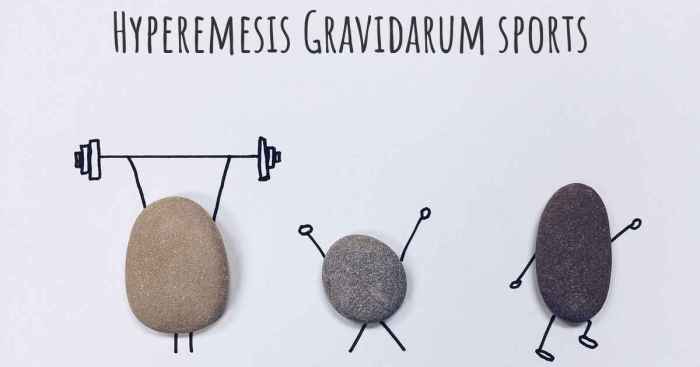Do i have hyperemesis gravidarum quiz – Do you suffer from severe nausea and vomiting during pregnancy? If so, you may have hyperemesis gravidarum (HG). This serious condition can lead to dehydration, malnutrition, and other complications. Take this quiz to assess your symptoms and determine if you may have HG.
HG is a debilitating condition that affects up to 2% of pregnant women. It is characterized by persistent and severe nausea and vomiting that can begin as early as the fourth week of pregnancy and last throughout the entire pregnancy.
The exact cause of HG is unknown, but it is thought to be related to hormonal changes and other factors.
Hyperemesis Gravidarum Overview: Do I Have Hyperemesis Gravidarum Quiz

Hyperemesis gravidarum (HG) is a severe form of nausea and vomiting that affects pregnant women. It can lead to dehydration, electrolyte imbalance, and malnutrition, and can be a serious health risk for both the mother and the developing baby.Symptoms of HG typically begin in the first trimester of pregnancy and can last for weeks or even months.
They include:
- Severe nausea and vomiting that persists throughout the day
- Dehydration, leading to symptoms such as thirst, dizziness, and fatigue
- Weight loss
- Electrolyte imbalance, which can cause symptoms such as muscle cramps, weakness, and confusion
- Malnutrition, which can lead to deficiencies in vitamins, minerals, and other nutrients
HG Diagnosis and Management
HG is diagnosed based on the severity of the symptoms and the presence of other medical conditions. Treatment options for HG may include:
- Anti-nausea medications
- Intravenous fluids and electrolytes to correct dehydration and electrolyte imbalance
- Nutritional support, such as a high-protein diet or tube feeding
- Hospitalization in severe cases
Medical intervention is important for HG because it can help to prevent serious complications and ensure the health of both the mother and the baby.
Impact of HG on Mother and Baby
HG can have a significant impact on the health of both the mother and the baby. For the mother, HG can lead to:
- Dehydration and electrolyte imbalance
- Malnutrition
- Weight loss
- Fatigue
- Depression and anxiety
For the baby, HG can lead to:
- Low birth weight
- Premature birth
- Birth defects
- Stillbirth
Prenatal care is essential for women with HG to monitor the health of both the mother and the baby and to provide appropriate treatment.
Quiz: Do I Have Hyperemesis Gravidarum?
To assess your symptoms of HG, answer the following questions:| Question | Answer Choices ||—|—|| Do you have severe nausea and vomiting that persists throughout the day? | Yes/No || Have you lost weight due to nausea and vomiting? | Yes/No || Have you been unable to keep fluids down for more than 12 hours? | Yes/No || Do you have symptoms of dehydration, such as thirst, dizziness, or fatigue? | Yes/No || Do you have any other medical conditions that could be contributing to your nausea and vomiting? | Yes/No |If you answered yes to three or more of these questions, you may have HG and should see a doctor for evaluation and treatment.
Additional Resources and Support, Do i have hyperemesis gravidarum quiz
If you are experiencing symptoms of HG, it is important to seek support from your healthcare provider. There are also a number of resources available to help you manage your symptoms, including:
- The Hyperemesis Education and Research Foundation (HER Foundation)
- The National Association for Anorexia Nervosa and Associated Disorders (ANAD)
- The International Hyperemesis Gravidarum Foundation (IGHF)
Support groups can also be a valuable resource for women with HG. These groups provide a safe and supportive environment where women can share their experiences and learn from others who have been through similar challenges.
Q&A
What are the symptoms of HG?
The symptoms of HG include severe nausea and vomiting that can begin as early as the fourth week of pregnancy and last throughout the entire pregnancy. Other symptoms may include dehydration, weight loss, fatigue, and electrolyte imbalances.
What are the risk factors for HG?
The risk factors for HG include a history of HG in a previous pregnancy, multiple pregnancies, molar pregnancies, and certain medical conditions such as thyroid disease and diabetes.
How is HG diagnosed?
HG is diagnosed based on the severity of the symptoms and the presence of other medical conditions. Your doctor may order blood tests, urine tests, and an ultrasound to rule out other causes of nausea and vomiting.
How is HG treated?
There is no cure for HG, but there are treatments that can help to relieve symptoms. These treatments may include medications, dietary changes, and lifestyle modifications. In some cases, hospitalization may be necessary.


